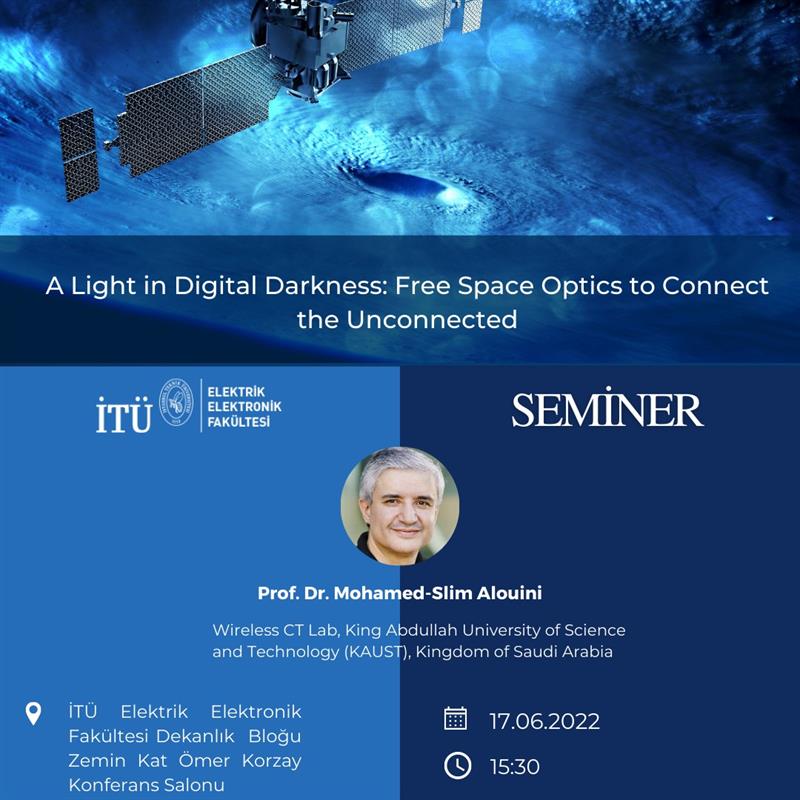Prof. Alouni - ITU Seminar ... details

A Light in Digital Darkness: Free Space Optics to Connect the Unconnected
Abstract: Despite the ubiquitous digital connectivity that we experience all around us, it is a fact that almost half of the population of the world is still “offline” due to the lack of a robust Internet and communications infrastructure in many places on the globe. The reason why such digitally dark spots still exist in the world is mainly two-folds. For one, economically backward or thinly scattered populations are not viable for relatively larger investments in communications infrastructure. Secondly, a hostile geography/terrain raises the cost of installing optical fibers and other equipment. Thus, its no wonder that many big Internet giants such as Amazon, Facebook, and SpaceX, have attempted to reach the hitherto “digitally inaccessible” regions by providing connectivity through satellites or high altitude platforms (HAPs). A constellation of satellites/HAPs provides a more cost-effective and reliable alternative to the deployment of optical fiber and related equipment in such locations of the world. Because of the large chunks of relatively unlicensed bandwidth available in the optical spectrum, there is a great opportunity to use lasers for ground gateway station-satellite/HAPs, and inter-satellite or inter-HAP communications, a communications model known as the free-space optics (FSO). Towards that end, this talk examines the FSO communications from the perspective of satellite and HAP communications. In this regard, some new pointing, acquisition and tracking aspects are presented. Furthermore, this talk goes also through the adaptive optics and relaying schemes that are needed to deal with atmospheric turbulence which affects such kind of networks.
Biography: Mohamed-Slim Alouini was born in Tunis, Tunisia. He received the Ph.D. degree in Electrical Engineering from the California Institute of Technology (Caltech) in 1998. He served as a faculty member at the University of Minnesota then in the Texas A&M University at Qatar before joining in 2009 the King Abdullah University of Science and Technology (KAUST) where he is now a Distinguished Professor of Electrical and Computer Engineering. Prof. Alouini is a Fellow of the IEEE and OPTICA (Formerly the Optical Society of America (OSA)). He is currently particularly interested in addressing the technical challenges associated with the uneven distribution, access to, and use of information and communication technologies in rural, low-income, disaster, and/or hard-to-reach areas.
PDF File: Prof. Mohamed-Slim Alouini Seminar